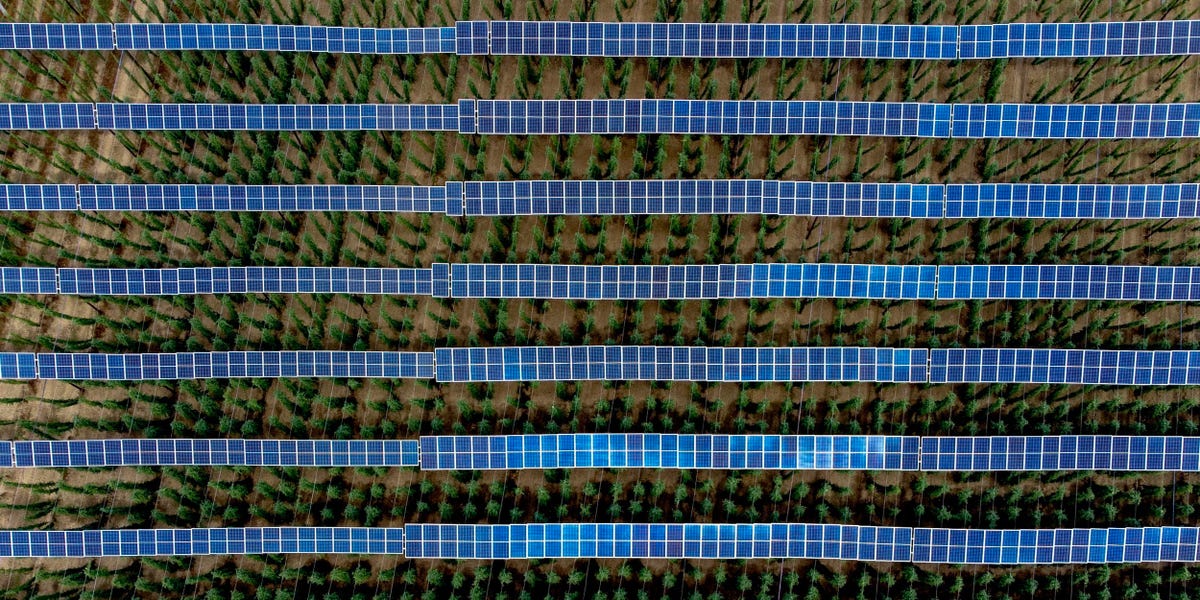Too much clean energy that is nearly free sounds like a much better type of problem to solve than most.
Stop burning coal then
The nuclear reactor shutdowns were a push by the Greens in the early years of this millennium. Probably the biggest change they succeeded with in German politics, so that tells you a lot about the quality of that “party”.
German power plants communicate with each other and coal power can go to 50% capacity in 15 minutes, during which the excess power can be sucked up by pumped hydro, for <1 minute long deviations there is enough battery and flywheel storage too. And most people in Germany have utility-controlled tank water heaters, which can be turned on not just at fixed hours but also based on the grid status (this causes the meters to go into Low-Tariff mode too), and sometimes even smart thermostats, enabling remote load management.
In emergency power excess, solar can go off grid safely or brakes can be applied to wind turbines, which wastes power but is preferred to overheating transformers due to higher mains frequency (yes, power overproduction causes the frequency to go up, not so much the voltage).
But maybe the coal lobby keeps convincing the distributor that operating plants below 80% doesn’t do their workers justice, or some nonsense like that
… Consumer water heaters in Germany are built in as demand shaving??? That is so damn cool.
Oh boy, you just triggered my nerd infodump mode. Brace yourself.
Disclaimer: I only researched the practical applications in the Czech Republic. I’d guess Slovakia’s situation is 99% similar, the neighboring Germany is 95% similar (just with more solar and no nuclear power) and most of Europe is 80% similar (with varying energy mixes). Similarly to Teletext, I am pretty sure Alec from Technology Connections (YouTuber from Chicago) would have made a video on this if it was widespread where he lives.
Basically yes. Residential boilers in Germany are part of load management.
Technically, the electric water heaters themselves are not “smart” in any way, they are just resistors and thermostats in a water tank. The “smartest” units you’ll find use a decades-old trick with two thermostats and heating filaments to achieve a larger virtual tank size. Turn them on, and they’ll do their best to maintain a steady 70 °C (or whatever) at the output. Similarly, gas furnaces are all rather dumb too. There are two contacts on the units; bridge them to allow at most 100 mA to flow, which will energize a contactor (big relay) to switch the heating element or signal to the furnace electronics to go through the ignition routine. Air conditioners typically have another contact for cooling.
This is great: the protocol basically every heater uses could not be simpler and that allows anyone to build a thermostat, so available products range from the most basic bimetallic units (temperature knob and manual day (T)/night (T–5°C)/off switch) to AI Smart Home Automation IoT Buzzword Salad™ devices. The most common kind nowadays has two AA cells, a thermistor, a simple LCD display, rubber buttons to temporarily adjust the temperature manually, and a flap to reveal more buttons that set the time and weekday, create the weekly temperature schedule, adjust hysteresis, start Vacation Mode etc. There is either a set of wired contacts and a latching relay for the aforementioned wired “protocol”, or a wireless transmitter that controls a wall-plug-based receiver close to the furnace.However, a ripple control system receiver can be connected in series to the thermostat, only allowing heating at certain times set in your energy contract. Or more often, people hook it up to the boiler. All energy you consume at these times is metered separately and up to 2x cheaper so the system saves you money at rare discomfort, you can use a switch to override it at any time if you accept the extra cost.
Various companies use ripple control system receivers for energy intensive, time-independent operations, such as
- water tower pumps
- baking, annealing furnaces
- computationally heavy tasks (rendering)
- heating water for swimming pools
- charging electric vehicles
All such uses have different tariffs, hours (plus limits to unscheduled switches) and thus need different RCS channels. Also, RCS receivers can control municipal lighting etc.
First dual-tariff systems used switching clocks inside the tamper-proof electric meter. This did not allow for regulation so that a simple device with mechanical logic (rotary decoder of series signal) was introduced, where a starting tone (3 seconds of an approx. 250 Hz “tone” on top of the mains voltage) followed by series of 44 gaps or tones (1 second long, 0.5 s apart) that singalled on/off states for each of the 44 channels. This was later revised into a “1 of 4” + “1 of 8” coding for 32 device groups, each then having 16 channels controlled by 2 bits each, with “10” meaning ON, “01” meaning OFF, any other means ERROR; ABORT RECEPTION. This division of the 44 pulses into groups of 4+8+2x16 allowed for 512 channels and more robustness. This protocol from the 1980s is used to this day, and so is a similar one in Germany called DECABIT. The later VERSACOM, used in both countries, then uses proprietary licenced data schemes with up to 128 bits and allows addressing individual customers. It always starts with 4 “1” bits so that dumb receivers expecting a “1 of 4” code (0001, 0010, 0100 or 1000) abort reception. VERSACOM receivers have clocks synced by special transmissions and keep a regularly broadcast weekly schedule in memory so that the bandwidth is free for the old protocol commands at switching times. Every household is assigned one of the 512+ channels and these groups switch minutes apart to prevent jumps in mains load.
I NEED A NAP. THE COMMENT WILL BE FINISHED IN A FEW HOURS.
OK, I’m going to save you time because I do some controls and totally get how “easy” demand management should be given how simple most devices are.
But WHAT?! Thats all built into the grid over there??? That’s AWESOME. Let me see if I have this right: there’s essentially a small transient frequency modulation in the 60hz(?) in the grid that allows devices to receive a “off” signal?
I could be wrong but I’m 90% sure we’ve got nothing like that in the states. MAYBE there’s something like that for communicating with the meter itself but certainly not past the meter.
Fuck that title. No such thing as too many solar panels. The only thing that is bad is how the energy is used or if it’s wasted. Free energy should mean algae production which would mean carbon negativity. Negative energy price should mean negative carbon emissions, get on it.
Germany actually spends money to stop Denmark producing power on windy days when prices get too low. Instead we could be making hydrogen and storing it in so many creative ways
Its ‘free’ anyway so there should be no concern about how much of it is lost in conversion
Maybe we’ll get to the point. This news just shows us, that solar power can really be very impactful, even in not-so-sunny Germany. And that we’ve reached a turning point, where we can no longer ‘just’ put up more solar panels, but also start developping systems to store this excess energy in an economically feasible manner.
But actually, that’s nothing very new either. At least for home owners, who just put solar panels on their roofs, also investing in battery storage to use most of the produced energy themselves has been the economic strategy for a few years, since the price gap between what you got for putting energy into the grid, and what you had to pay for taking energy out of the grid was the only thing left that (economically) incentivized people to install solar power ever since the so called “Einspeisevergütung” subsidies have been dropped.
Free energy should mean algae production
This is a jump I’m not understanding. Do you mean that energy having no cost would mean that the electricity generated can be used to make algae? Or that it’s a byproduct of?
Do you mean that energy having no cost would mean that the electricity generated can be used to make algae?
Yes. Make algae with energy that produces no carbon dioxide = carbon sink.
There’s just no economic incentive to do so. (yet?)
Exactly! Put a real price of carbon and this will start to chance.
The economic advantage is that our grandchildren might be able to have an economy if we don’t crash and burn this place before we die.
I agree. Unfortunately that is too abstract a factor for most peoples present investment decisions.
You are right, this is BS.
I recently researched this and Germany’s grid is quite “smart” (the oldest technologies involved, such as DECABIT or VERSACOM over PLC, very much predate the term “smart grid” but whatever) and power plants and households are connected for production and load control. Power plants are required to participate but households can use a load management system for water tank heating (the basic premise is that specific frequency impulses are sent over the power grid for primitive (originally relay-based!) logic in DECABIT meters to switch depending on the assigned device group, and meters count in lower-price mode while the load is activated for a guaranteed number of hours each day; you can manually override the switch for expensive on-demand water heating) and/or HVAC (here, a smart thermostat is usually used that gets real-time energy prices and decides based on its temperature range settings if it saves money to run heating/cooling).
People in Texas apparently hate this (muh freedom), and look how reliable their grid is!
Anyway, solar, unlike coal or nuclear, is absolutely capable of going off-grid if necessary. There is an MPPT system in their inverters that usually works to operate the panels at the optimal voltage & current so that it can suck the most power out of them but it can be overridden to work at below 100% efficiency, or even 0%. This will cause the panels to run with no current draw and get about 20% hotter but they are designed to withstand this. Still, this is an emergency condition, it is preferred to use pumped hydro (responds in 1 minute, limited capacity) or batteries (respond in seconds, very limited capacity) or lower coal/gas-based production (responds in 3-20 minutes for as long as you wish) or load-side management to regulate the grid, as it wastes no power.
The system is very complex and robust, the frequency (the variable most dependent on production/load balance) only dips below 49.8 Hz about once per a few years (the emergency value that was reached in February 2021 in Texas and can only be sustained for minutes before total blackout is -1% from nominal (49.5 or 59.4, respectively) and has never been touched in Europe’s modern history).
(You’d think it would be voltage what falls in case of too little power but it can be readjusted quite easily with switched transformer taps and, oddly enough, reactive power management (connecting a few capacitor/inductor banks to mains) when necessary, however frequency control is the difficult part.)Could you elaborate how to grow algae with electricity?
Turn excess electricity back into heat and light.
Input heat, light, water, air, and nutrients.
Output oxygen and carbon (algae biomass).
So how does that work? Could you make money running a big energy-wasting heating coil?
Do they have pumped hydro? Or maybe produce hydrogen intermittently with this surplus power…maybe sodium batteries will help with storage?
That’s the big, trillion-dollar question, right? Pumped hydro or air is the solution that definitely works, but air is extra lossy and hydro requires a huge reservoir. A battery system would be great, but Li-Ion is expensive, so you need a new chemistry. For grid storage, density, hazard and even operating temperature and pressure are not strict requirements, only cost, so it seems likely they exist, and at least sodium is in the early stages of commercialisation already.
Oh no! Failing from success! /s
Free energy!
Maybe if they keep buying petrol products from Russia then they can obtain enough grey hydrogen for a hydrogen economy. /s
It gets even more absurd. The southern states blocked building large power lines to transport cheap wind energy south. Now they struggle because the chea renewable energy cannot go there. So while there is plenty of renewables in the north the south still runs coal plants to provide local energy. But then the people in the north have to pay for “network fees” because the South couldnt take their energy.
Because of this it was suggested to split the German energy market in two, where the south which fought against renewables would have to pay the actual electricity costs instead of leeching of the North that properly build up renewables. This was fought teeth and nails because the South of Germany is like Texas but with an even worse superiority complex.
“South Germany” Du meinst Bayern, oder ist Hessen auch dabei? xD
Hauptsächlich Bayern, aber Hessen und BaWü haben sich mWn. bei Netzausbau und Ausbau erneuerbarer Energien bisher auch nicht mit Ruhm beckleckert.
Aktuell wird doch ne Stromtrasse durch BW gebaut. Diese lächerliche Nummer von wegen, wir hätten gerne Strom, aber keine Trasse, war eine astreine CSU Nummer.
Germany pays Denmark money to stop creating wind energy when the prices get too low
Imagine having so much energy that you’d rather spend money not to harvest it, instead of maybe using it to make hydrogen or storing it on other ways
Hydrogen generators don’t pay for themselves if they only run now and then, that’s why nobody has built one just to use the excess energy only.
Are you sure? Maybe they dont pay for themselves as fast as investors would want? Maybe its because the market for them is not ripe yet?
A manufacturing company around here is currently building their own energy solution involving solar panels and three wind generators, iirc. They do set up a hydrogen generator because they need the hydrogen for some processes but they are not building it bigger than necessary for that, citing that using it for energy storage as well would be less cost efficient than some short term energy storage using battery buffers on site and relying on the grid for the rest.
Interesting!
I only think that this proves that its can be though. Just because batteries and the grid are cheaper for their exact needs, doesn’t prove that it’s useless. Still, it the idea of stopping the harvest of energy when it is too cheap to make money on, that is wrong. There are other methods to store electricity, like pumped storage (gravity storage), heat, compressed air, flywheel energy storage etc.
People here are getting rid of their hydrogen cars, because there are no places to refuel them. (Danish articled)
Germany has been building some really big battery installations already with a lot more to come. These things take time.
Usually investors want a business case first. Note they have free every they can sell later. Battery installations will appear.
No. That’s like saying the UK has too much wind power because our prices occasionally go negative. What Germany might not have enough of is battery and other storage
Did you know that the best way we currently have to store energy are dams? In most dams you can install a pump to take water and store it higher, then when energy is needed you simply open the turbine.
Hydrogen and Methane Power-to-gas can store more power for longer than hydro pump
huh i hadn’t heard of this one? I went to a dam last year and that’s what the guide told us…
The problem with dams or pumped storage is it only works in specific places where you have a higher place to put lots of water.
Seems like dams should only be used in those situations then…
Yep! I suppose we could build a huge Tank or something XD
You need a certain kind of landscape for that. I think the UK only has a couple of pumped storage power stations due to lack of suitable sites
Seems like a great profit opposite grid storage!
Good. Cheap electric will help more transition from more polluting energy types. Electric cars, ovens, steel, etc.
Leave it to the business world to wet-blanket this because of money. Really helps the cause, public opinion, and such.
More from the same author:
Starvation and malnutrition plummet as crop yields increase. Unfortunately a new industry of storing food must be created to ensure the excess is preserved for times of need.
Free time skyrockets as menial labor is offloaded onto AI and machines. Unfortunately a new self-actualization industry must be created for people to learn intellectual and creative skills they didn’t have time or money for.
Higher education rates increase as governments help fund students and enact laws to keep for-profit-education from price gouging. Unfortunately untold new industries are created as unnoticed talent is given the opportunity to cultivate it.
Cheap energy being framed as some kind of problem is a great demonstration of why we need a free press that isn’t solely owned by billionaires
Not to be too much of a contrarian, but it sorta is a problem if it is too cheap to support the people that are required to repair it and the parts/replacements for stuff that has failed. Plus, in 20-30 years you are going to have to have enough money on hand to replace todays panels, which if energy costs are almost free/negative, you might not. These are somewhat solvable problems (make energy costs just a tax to support the grid and cut out profit from the equation for the public good), but it is a bit of an issue that probably needs to be planned for.
Then it’s not “too cheap”. Charge the price it takes to maintain the production.
They could always just close their coal power plants. Idk why they don’t.
My guess is that in a climate like Germany’s, solar isn’t consistent enough to provide the steady baseline power that coal plants can.
One of the complexities of power infrastructure is that demand must be met instantaneously and exactly. Coal and solar typically occupy different roles in a grid’s power sources. Coal plants are slow to start, but very consistent, so they provide baseline power. Solar is virtually instantaneous, but inconsistent, so it’s better suited to handle the daily fluctuations.
So, in a place like Germany, even in abundance, solar can’t realistically replace coal until we have a good way of storing power to act as a buffer. Of course, nuclear is a fantastic replacement for coal, but we all know how Germany’s politicians feel about it…
We also know building nuclear takes 20 years and costs more than building thrice the capacity in renewables + Germany has no long-term nuclear storage, only temporary one’s a la Simpsons.
Germany had 17 active nuclear plants in 2011 and decommissioned them all by 2023.
They were already past their expiry date. Germany would face the same shit France is facing with their old reactors.
You are correct that when you build one new plant every 25 years it takes a long time to spool the industry, the skills, the testing and the manufacturing capability up to build new nuclear.
In countries that regularly build new nuclear it takes 5 years, comparable to any other power source. When France when through their mass-conversion to nuclear in the 70s (following the oil crisis), they put 2-3 new nuclear plants into operation every year.
All new western nuclear is in “production hell”. We don’t build them often enough to retain the skill set or for industry to dare invest. So they become massive state-run enterprises.
If we were serious on solving our climate crisis we would build nuclear power plans en masse.
We also know building nuclear takes 20 years and costs more than building thrice the capacity in renewables
Nonsense, https://nanonuclearenergy.com/, https://www.nuscalepower.com/, http://smart-nuclear.com/, etc.
I guess I meant not all of them and especially not at the same time but that wasn’t clear in my first post. I understand that a baseline is needed but if during daytime they’re generating excess constantly then shutting down a few wouldn’t hurt. Especially since Germany is one of the biggest offenders in the world when it comes to coal. Storage is definitely a concern but in case of surges there’s other power from neighboring countries that can help with the demand. Sodium ion batteries are looking like a good possibility.
Coulnd’t we use solar to pump water into reservoirs, and then let the water flow through hydroelectrical dams when we need the electricity?
[yes](> https://en.wikipedia.org/wiki/Pumped-storage_hydroelectricity)
Taking into account conversion losses and evaporation losses from the exposed water surface, energy recovery of 70–80% or more can be achieved. This technique is currently the most cost-effective means of storing large amounts of electrical energy, but capital costs and the necessity of appropriate geography are critical decision factors in selecting pumped-storage plant sites.
Oh wow, I had no idea this existed. Awesome!
Wait Are these not common where you are?
Not enough preparation for saving energy overnight.
because solar panels are not a controllable energy source, solar is great until there’s a cloud or it’s nighttime, coal on the other hand is a controllable energy source. Since we can’t effectively store energy we have to be constantly producing enough for the whole population, it’s a really hard job!
I can hear Nikola Tesla rolling over in his grave
Can we use him to generate power?
It sounds like some enterprising capitalist should be building out energy storage to be paid to take the surplus and sell it back when the sun’s not out.














